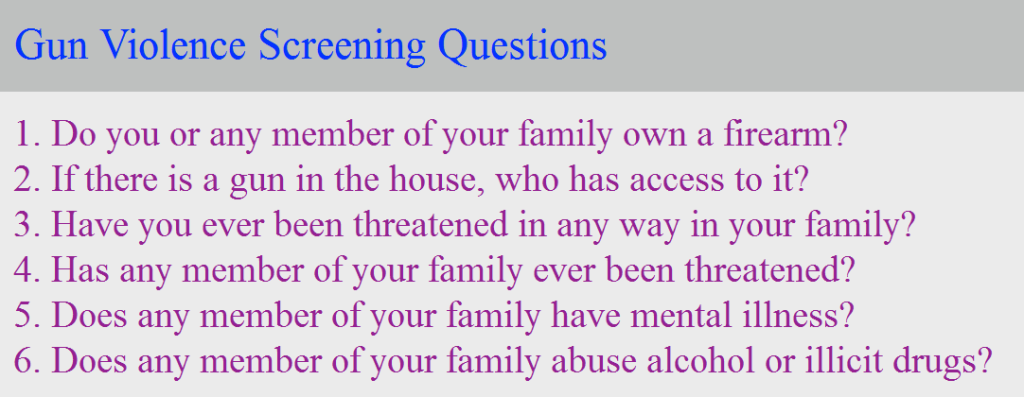 With the rise in high-profile shootings across the country, the potential for gun violence is becoming an integral part of the patient’s healthcare in both screening and prevention. The White House has recently issued a statement requesting doctors to protect patients and communities from gun violence. Physicians have traditionally addressed socio-personal issues relating to illicit drugs and alcohol use, seat belt use, depression, sexual history, domestic violence, and mental health in the clinic. Now, many doctors are coming around to the belief that discussing gun ownership habits and certain red flags are correct to discuss with willing patients as well.
With the rise in high-profile shootings across the country, the potential for gun violence is becoming an integral part of the patient’s healthcare in both screening and prevention. The White House has recently issued a statement requesting doctors to protect patients and communities from gun violence. Physicians have traditionally addressed socio-personal issues relating to illicit drugs and alcohol use, seat belt use, depression, sexual history, domestic violence, and mental health in the clinic. Now, many doctors are coming around to the belief that discussing gun ownership habits and certain red flags are correct to discuss with willing patients as well.
While there are no mandates requiring doctors to talk with you about gun ownership, many doctors have begun doing so of their own volition. This screening process typically involves a set of short questions which are designed to asses common risk factors regarding gun ownership. These risk factors include availability of unlocked firearms, past threats made involving firearms, and the mental health of people with easy access to firearms.

These questions were designed to be uncontroversial while still helping identify potentially dangerous situations involving guns. For example, there is near-universal agreement that firearms are dangerous in the hands of people with certain mental illnesses, or those who regularly abuse drugs. Likewise, most responsible gun owners understand the need to keep firearms locked up in the presence of children.
Obviously, you are under no obligation to answer these questions. But your doctor is asking them for a reason. Many gun-related deaths are preventable. Many happen after a long history of threats or other red flags. Still others happen because of untreated mental illness coupled with easy access to firearms. While doctors cannot prevent all these tragedies, they can in many cases help identify dangerous or life-threatening scenarios before they happen.
There is no easy solution to gun violence, and certainly clinical screening is not going to fix it entirely. But the hope is that by asking the right questions and helping patients better understand potential risk factors in a household with guns, doctors will be able to prevent deaths and help patients lead longer lives – which is, after all, their business.